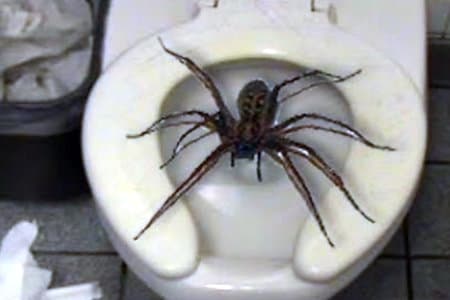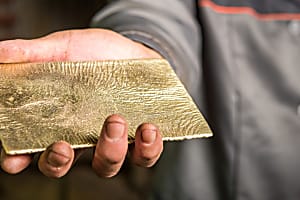Lonely in life, 'Prince' Ali Raza was also lonely in death. As the police found his lifeless form on a couch on September 2, a tumultuous chapter that had inspired many a gossipy tale for over 30 years, came to an end..
Raza, his sister Sakina, and their mother Begum Wilayat Mahal, had made it to the headlines in the 1970s by claiming to be the direct descendants of the last king of Avadh, Nawab Wajid Ali Shah. Mahal had occupied the first class waiting lounge at New Delhi Railway Station along with her two children, a pack of hounds, and a few servants. She had demanded compensation from the Indian government for the British taking over all the properties of the Nawab after deposing him in 1856.
Mahal's sensational claim had brought a lot of press attention then. Eventually, a house was arranged for her in Lucknow. TOI found a letter written by Rajan Kashyap, deputy secretary of the ministry of home affairs, dated July 18, 1977, in which Mahal was informed about the district magistrate of Lucknow arranging for her a house (MG-99) at Aliganj.
"But she had refused to move to Lucknow and had asked for an alternative accommodation in Delhi itself," recalled Anil Chandra, a resident of Malcha Marg in Lutyens' Delhi.
Mahal refused to leave the railway station. Requests and threats didn't help. In fact, she would threaten to kill herself by drinking poison just like a famous ancestor of hers supposedly did—a tale that historians haven't been able to prove so far.

But that was the nature of Mahal's claim to hallowed ancestry—disputed by other, recognised members of the dynasty. Yet these had no impact on the decision by the Union government in 1985.
"Mahal was offered a DDA flat. But she had refused to settle for anything less than a palace. And a palace was indeed given to her, only a 14th-century one," Chandra recalled.
Known then simply as Bistadari ruins, it was a 14th-century shikargah or a hunting lodge believed to have been built by Sultan Ferozeshah Tughlaq. Located in the heart of Lutyens' Delhi, it came to be known as Malcha Mahal as it faced Malcha Marg. But this happened once WilayatMahal came to stay there with her kids, dogs and attendants.
However, the family chose a life of isolation right from the beginning. Protected by the ferocious canines, the family wouldn't let anyone come anywhere near their 'palace'. A signboard was put up, warning of terrible consequences for any feat of derring-do. Mahal was known to come good on her threat—she unleashed her dogs on the particularly adventurous.
But life at the ruins was hard without water and power. The family wrote to the authorities several times for repairs and other help. A letter written by Raza — now lying on a charpoy — read: "...Those having a conscience should know his Royal house of Oudh — staying at Malcha Mahal— is perhaps more complete without water and electricity — with flooded rooms. And no defeat more conclusive for the government of India in particular....(sic)"
On September 10, 1993, Mahal committed suicide. And her children slipped into depression following that. Four years ago, Sakina died too, leaving Raza all alone in this world. He would have occasional visitors in members of the foreign press corps, but he mingled with nobody else. A guard at a nearby ISRO earth station said even policemen were not allowed in. "He had many dogs earlier, but I saw only one in the last one year," he said, adding that he would see Raza cycle towards the main road at times, but never saw him carry groceries. Nobody knew how Razasurvived.
But TOI found a money receipt of Rs 2,468 wired by one Zahir Shahid from the UK. In fact, reaching the place was quite an adventure in itself. The entrance was blocked and we had to climb over a wall.
Inside, the worldly possessions of the family were strewn all over. The only thing that was in order somewhat was a dining table with cups, kettle and plates stacked neatly. A plant by the table seemed to be dying. A red-colour telephone set lay broken too.
What was more striking was a tall glass filled with water on the table. May be dinner was just about to begin when Raza had breathed his last that night. It was hard to make out, though, if Raza had lost his life, or life had lost him. He was buried at a cemetery near Delhi Gate with some help from the Waqf Board.
Police ruled out any foul play.
Raza, his sister Sakina, and their mother Begum Wilayat Mahal, had made it to the headlines in the 1970s by claiming to be the direct descendants of the last king of Avadh, Nawab Wajid Ali Shah. Mahal had occupied the first class waiting lounge at New Delhi Railway Station along with her two children, a pack of hounds, and a few servants. She had demanded compensation from the Indian government for the British taking over all the properties of the Nawab after deposing him in 1856.
Mahal's sensational claim had brought a lot of press attention then. Eventually, a house was arranged for her in Lucknow. TOI found a letter written by Rajan Kashyap, deputy secretary of the ministry of home affairs, dated July 18, 1977, in which Mahal was informed about the district magistrate of Lucknow arranging for her a house (MG-99) at Aliganj.
"But she had refused to move to Lucknow and had asked for an alternative accommodation in Delhi itself," recalled Anil Chandra, a resident of Malcha Marg in Lutyens' Delhi.
Mahal refused to leave the railway station. Requests and threats didn't help. In fact, she would threaten to kill herself by drinking poison just like a famous ancestor of hers supposedly did—a tale that historians haven't been able to prove so far.

But that was the nature of Mahal's claim to hallowed ancestry—disputed by other, recognised members of the dynasty. Yet these had no impact on the decision by the Union government in 1985.
"Mahal was offered a DDA flat. But she had refused to settle for anything less than a palace. And a palace was indeed given to her, only a 14th-century one," Chandra recalled.
Known then simply as Bistadari ruins, it was a 14th-century shikargah or a hunting lodge believed to have been built by Sultan Ferozeshah Tughlaq. Located in the heart of Lutyens' Delhi, it came to be known as Malcha Mahal as it faced Malcha Marg. But this happened once WilayatMahal came to stay there with her kids, dogs and attendants.
However, the family chose a life of isolation right from the beginning. Protected by the ferocious canines, the family wouldn't let anyone come anywhere near their 'palace'. A signboard was put up, warning of terrible consequences for any feat of derring-do. Mahal was known to come good on her threat—she unleashed her dogs on the particularly adventurous.
But life at the ruins was hard without water and power. The family wrote to the authorities several times for repairs and other help. A letter written by Raza — now lying on a charpoy — read: "...Those having a conscience should know his Royal house of Oudh — staying at Malcha Mahal— is perhaps more complete without water and electricity — with flooded rooms. And no defeat more conclusive for the government of India in particular....(sic)"
On September 10, 1993, Mahal committed suicide. And her children slipped into depression following that. Four years ago, Sakina died too, leaving Raza all alone in this world. He would have occasional visitors in members of the foreign press corps, but he mingled with nobody else. A guard at a nearby ISRO earth station said even policemen were not allowed in. "He had many dogs earlier, but I saw only one in the last one year," he said, adding that he would see Raza cycle towards the main road at times, but never saw him carry groceries. Nobody knew how Razasurvived.
But TOI found a money receipt of Rs 2,468 wired by one Zahir Shahid from the UK. In fact, reaching the place was quite an adventure in itself. The entrance was blocked and we had to climb over a wall.
Inside, the worldly possessions of the family were strewn all over. The only thing that was in order somewhat was a dining table with cups, kettle and plates stacked neatly. A plant by the table seemed to be dying. A red-colour telephone set lay broken too.
What was more striking was a tall glass filled with water on the table. May be dinner was just about to begin when Raza had breathed his last that night. It was hard to make out, though, if Raza had lost his life, or life had lost him. He was buried at a cemetery near Delhi Gate with some help from the Waqf Board.
Police ruled out any foul play.
Get latest news & live updates on the go on your pc with News App. Download The Times of India news app for your device.


















